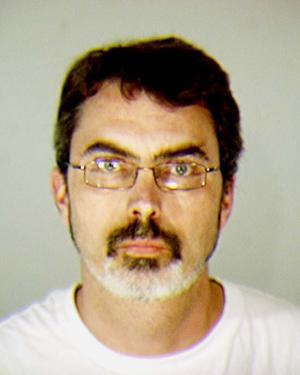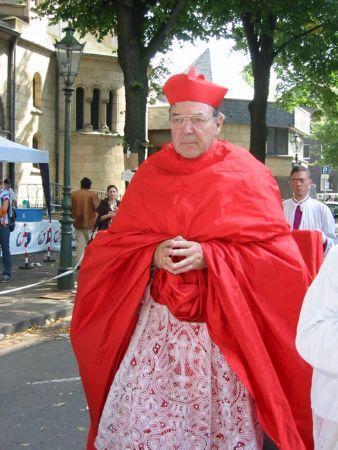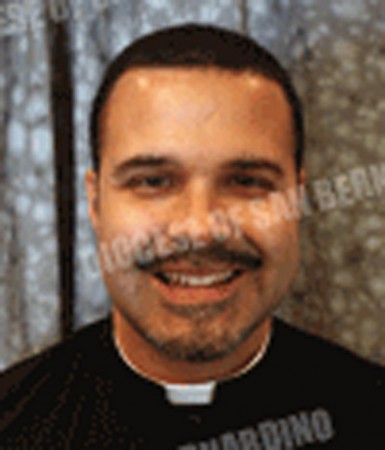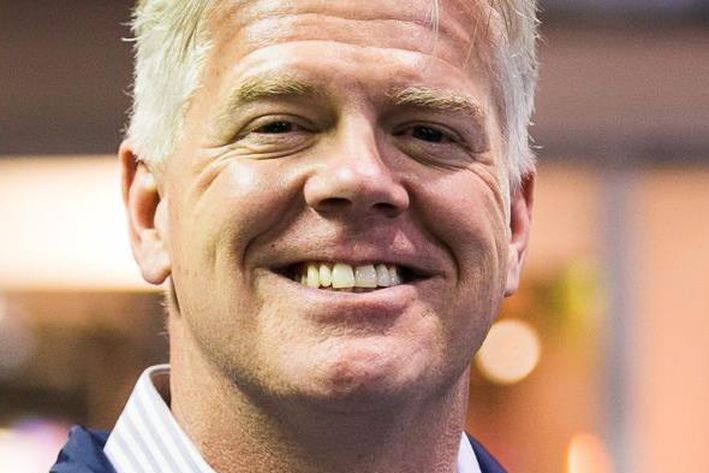Just before graduation last year, campus priest Warren Hall was walking across Seton Hall’s grounds sipping some coffee when a student ran up to him. The student thanked Hall for his tutelage and posed a question he hadn’t heard before.
“Are you gay?”
Hall nearly dropped his coffee cup. She reminded him that he had always taught his students to be honest with themselves and others about who they are. But he had never been asked about his sexual orientation by anyone at Seton Hall. He couldn’t let slip away the opportunity to walk his talk. He nodded his head.
“That student was right,” Hall said. “I have to be myself. I can’t worry what other people think.”
It wasn’t because of his sexual orientation that Hall posted a Facebook message supporting the pro-LGBT NOH8 Campaign last autumn. It was in the middle of a growingly intense national conversation about race that he posted the message, focusing mostly on the idea of opposing race-based hate. A month later his boss asked for a meeting. In the meeting he was ordered to explain the Facebook post.
“Warren, we can’t have this.”
The church was against same-sex marriage, his superior explained, and they couldn’t have priests supporting an organization that was designed to promote marriage equality (the NOH8 campaign rose from the 2008 California vote ending same-sex marriage). Hall provided the context – that he posted it as a commentary on bullying and hate focusing on race and other demographics; Support for same-sex marriage wasn’t intended as part of his message. The next day the vicar general asked to meet with Hall, and again he explained the photo. That seemed to quell the furor.
It wasn’t until five months later – last Monday as he was administering an exam to his sports and spirituality class – that he received a note to call the Archbishop.
“None of us want bullying,” the Archbishop told him, “but you have a further agenda here, and I can’t have you at Seton Hall because of that.”
He was devastated. His position at Seton Hall had lifted him out of a bad situation when he was the president of a private high school years earlier. He had been arrested for driving under the influence of alcohol, and the local media and others in the community pushed him out of the job. The church had refused to abandon him despite his dangerous transgression. The Archbishop gave him a second chance at Seton Hall.
Yet the same Archdiocese that had stood by him after his DUI felt the possibility of simply being perceived as supporting same-sex marriage went too far.
This wasn’t the tradition of Christian universities he knew. For Hall, Catholic schools had for centuries signified a willingness to learn, places to exchange ideas and enhance intellect. Shutting down conversation because the Pope or Archbishop didn’t like the direction of the conversation? That is not Hall’s understanding of a Catholic university.
“Let’s discuss gay marriage as an anthropological and sociological issue. What’s wrong with that? Why can’t we talk about that? We’re a better place when we have people who have studied these issues. The idea that ‘we can’t talk about that’ makes no sense. If the students want to talk about that, let’s talk about it with them. When we say we can’t talk about something, that goes against he very nature of what a Catholic university is. That conversation should happen here with the students and the faculty, not firing somebody because of their view on an issue.”
His image of Seton Hall shattered, he took to social media. He had thought about staying quiet, sweeping under the vestments the real reason for his departure from the campus he had grown to appreciate and the students he had grown to love.
“I was going to to say I chose to leave, or that my time here was finished,” Hall said. “But that wasn’t true. It wasn’t. I’ve never lied to a student about anything. I couldn’t lie about this.”
It wasn’t 48 hours before Hall got wind of another move made by Seton Hall – the signing of openly gay shooting guard Derrick Gordon to the men’s basketball team. In his role as director of the campus ministry, Hall has ministered to various Pirates sports teams. He didn’t just sit on the bench during games or offer a pre-game prayer, he worked with the athletes creating retreats for them where he could engage them on a deeper spiritual level. He explored the ties between faith and athleticism, teaching classes on sports and Christianity like the one he was instructing when he got that fateful note two weeks ago.
Being removed from this role on campus has brought a sense of irony for Hall.
“I’ve been accused of being against he Catholic mission, and here I thought I was supporting it.”
Hall said he has spoken to many LGBT students at Seton Hall, and not one of them reports being mistreated by any of the students or faculty. He thinks Gordon will experience the same treatment from most of the campus.
“With Derrick Gordon going to Seton Hall as an openly gay athlete, I don’t think he’ll have trouble here with the student body or with the faculty,” Hall said. “How the administration handles that, I do not know. When he’s walking across campus holding hands with his boyfriend, what is the administration going to think of that? But the student body here is very open and welcoming.”
Hall isn’t sure what’s next for him. He has written to the Archbishop asking for a six-month sabbatical. He had no prior indication that a big change might be coming his way, so he would like some time to think about his next big move within the church before being reassigned. Whether he gets that time before another official assignment is entirely up to the Archbishop.
I ended my phone interview with Hall by circling back to his story about the student who asked him if he was gay. While he had professed and reiterated his commitments to the church (priests, after all, make a commitment to celibacy), He wasn’t “out” in a public sense. A select few knew, but telling me was very different from telling a student shortly before she embarked on her life’s journey.
“The best way to live is to live honestly. Honesty with oneself is the most important thing, but you have to be honest with other people.
“I’m not afraid of those questions anymore.”
Complete Article HERE!






